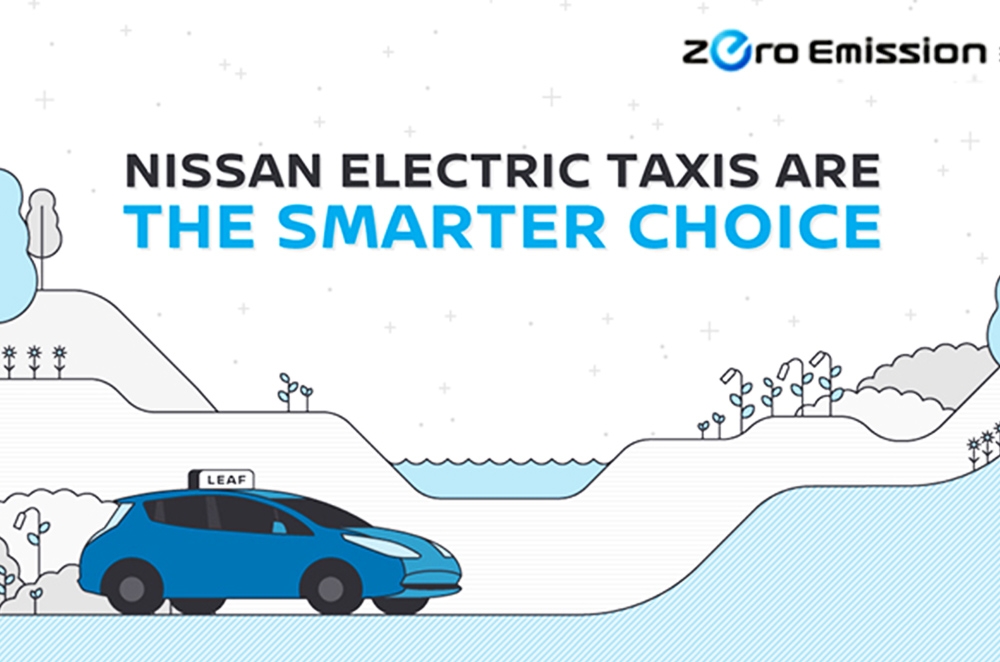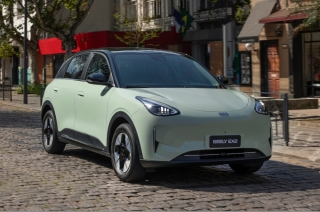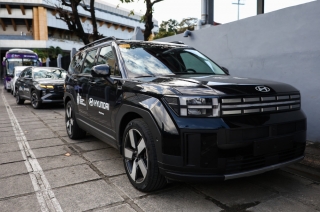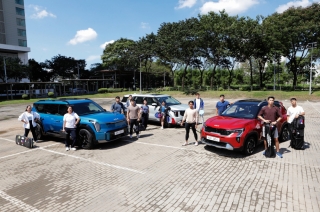
More and more car manufacturers are pledging to go electric (EV), one of which was Volvo. Then last week, France announced that no gasoline- and diesel-powered cars will be allowed to roam its streets starting 2040. Parallel to all these paradigm shift in the automotive scene, Nissan promotes its campaign towards global electric taxi revolution.
Why taxis? According to an infographic from Nissan, the current number of EV cabs in the world today saves up to 90,835 tons of CO2 emissions every 4 years of service. That is a groundbreaking 82,404,149 kg of CO2. Take note, we are looking at just a fraction of the world with EV taxis here; imagine if all taxis in the planet go full-electric.

In fact, a Japanese taxi company in 2013 decided to convert its entire fuel-powered cab fleet to zero-emission Nissan LEAFs. It marked the first step in the said revolution, and was then followed by various countries in Europe, as well as Mexico and Jordan. Currently, 5 continents, 26 countries, and 113 cities are running Nissan LEAF and e-NV200 taxis.
A huge deduction in carbon emission itself should be enough to convince each and every driver there is. Yet, aside from that, switching to EVs gives us more of the pros too, as they are 40% cheaper to maintain compared to conventional cars with internal combustion engines (ICE). This is because there are less components in an EV than in an ICE-bearing vehicle.
What about the Philippines? Where are we in all these?
In case you missed it, our country recently hosted the 1st ASEAN Electric and Hybrid Vehicle Summit. This is the first big step that the Philippines took ever since the campaign of switching to EVs began. The meeting granted the local government a number of EV units from Japanese carmaker Mitsubishi, which might suggest that EV taxi’s will also probably hit our streets, all in the right time.
Latest News
-
Geely’s EX2 EV headed to Australia — is a Philippine launch possible? / News
The Geely EX2 is confirmed to go on sale in Australia in 2026. Could a launch in the Philippines also be on the cards?
-
Hyundai Motor Philippines is the FIFA Futsal Women's Teams' official mobility partner / News
Hyundai Motor Philippines strengthened its partnership with FIFA through its support of the FIFA Futsal Women's Teams.
-
Kia Philippines backs EJ Obiena as Atletang Ayala continues championing Filipino athletes / News
Kia Philippines strengthens its support for EJ Obiena, backing the Olympian with dedicated mobility at home and abroad.
Popular Articles
-
Electric Vehicles in the Philippines for under P1 million
Jerome Tresvalles · Aug 19, 2025
-
Top 3 Cars For Every Lifestyle—What Cars Are Right For You? | Behind a Desk
Caco Tirona · Apr 24, 2024
-
5 Tips to Maximize Fuel Efficiency
Jerome Tresvalles · Sep 09, 2024
-
Five driving habits that are draining your fuel tank
Jerome Tresvalles · Jun 24, 2025
-
Can engine braking harm your engine?
Jerome Tresvalles · Sep 11, 2025
-
Do electric cars even need maintenance?
Jerome Tresvalles · Oct 23, 2024
-
Best vehicles for an active outdoor lifestyle
Shaynah Miranda · Jul 25, 2024
-
How to drive different types of vehicle transmissions
May 23, 2024
-
5 easy ways to keep your car interior clean
Allysa Mae Zulueta · Nov 15, 2021
-
How to survive Metro Manila traffic
Earl Lee · Aug 16, 2022



